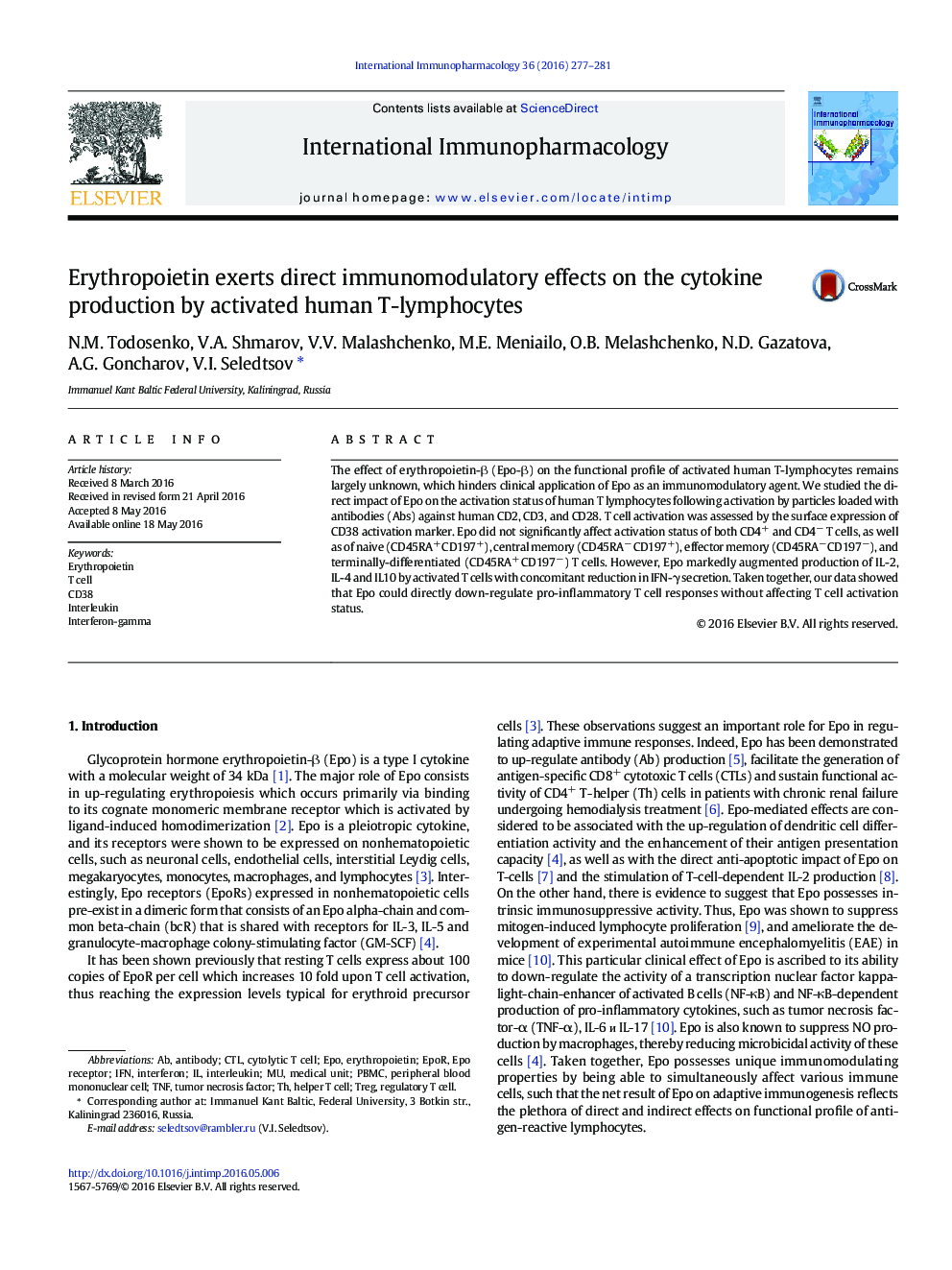| Article ID | Journal | Published Year | Pages | File Type |
|---|---|---|---|---|
| 5832022 | International Immunopharmacology | 2016 | 5 Pages |
â¢ÐÑо fails to exert significant effects on T cell activation associated with surface expression of СD38 molecules.â¢ÐÑо up-regulates Т cell-dependent production of IL-2, IL-4, and IL-10 with concomitant down-regulation of IFN-γ production.â¢Epo is able to directly down-regulate pro-inflammatory T cell responses without affecting T cell activation status.
The effect of erythropoietin-β (Epo-β) on the functional profile of activated human T-lymphocytes remains largely unknown, which hinders clinical application of Epo as an immunomodulatory agent. We studied the direct impact of Epo on the activation status of human T lymphocytes following activation by particles loaded with antibodies (Abs) against human CD2, CD3, and CD28. T cell activation was assessed by the surface expression of CD38 activation marker. Epo did not significantly affect activation status of both CD4+ and CD4â T cells, as well as of naive (CD45RA+ CD197+), central memory (CD45RAâ CD197+), effector memory (CD45RAâ CD197â), and terminally-differentiated (CD45RA+ CD197â) T cells. However, Epo markedly augmented production of IL-2, IL-4 and IL10 by activated T cells with concomitant reduction in IFN-γ secretion. Taken together, our data showed that Epo could directly down-regulate pro-inflammatory T cell responses without affecting T cell activation status.
